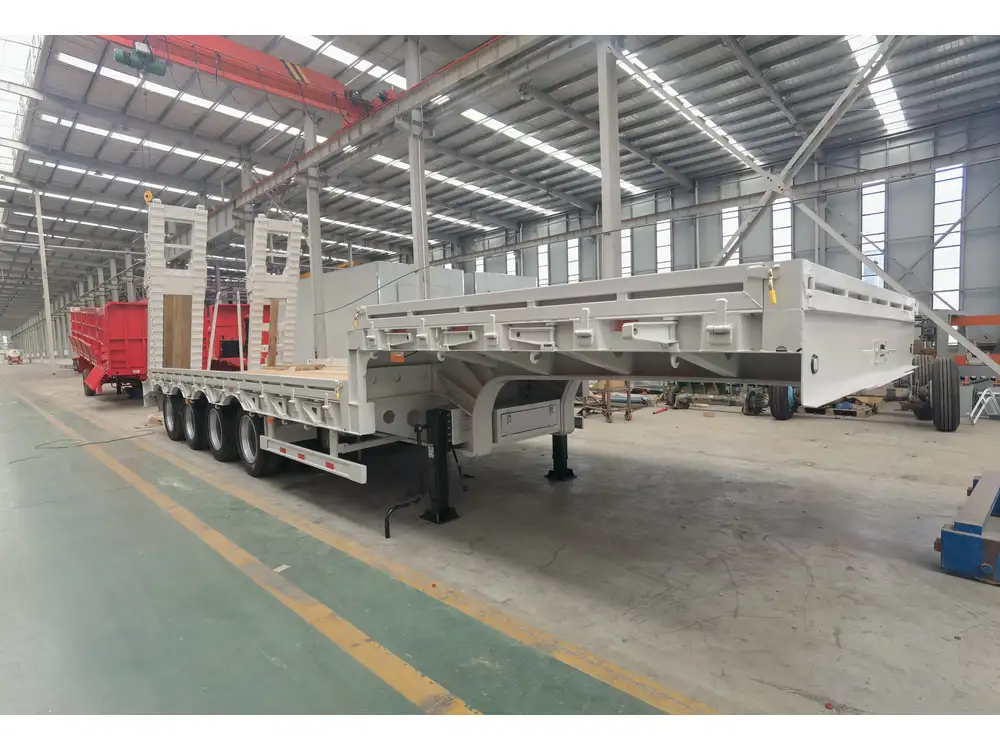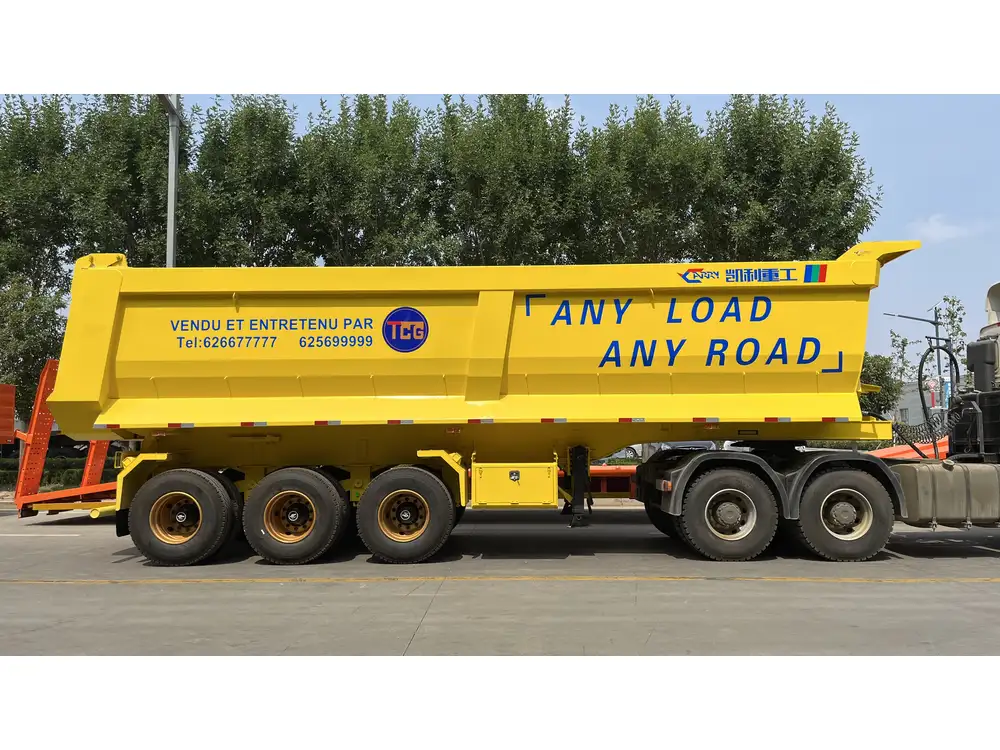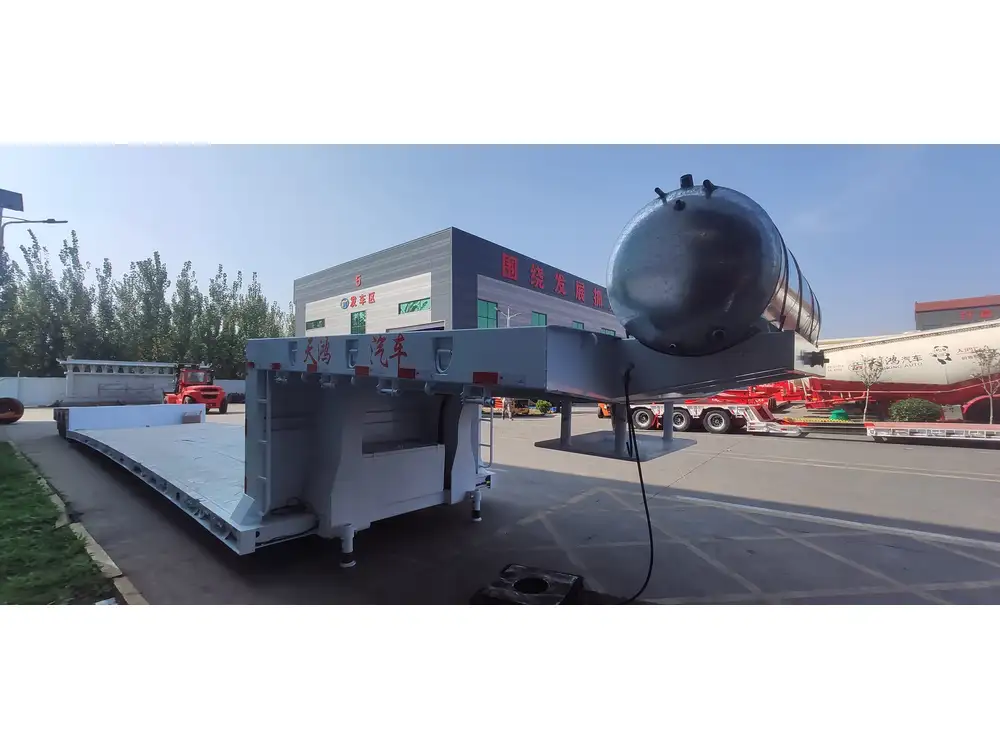The Transportation Landscape: An Overview
In the ever-evolving world of logistics and transportation, the synergy of various vehicles plays a critical role in efficient cargo movement. Among these, the pickup truck stands out as a versatile workhorse. One question frequently asked by logistics professionals and casual users alike is: “Can a pickup pull a semi trailer?” To accurately navigate this inquiry, we must delve into key factors, technical specifications, and real-world implications of towing a semi-trailer with a pickup truck.
Understanding Towing Capacity

1. What is Towing Capacity?
Towing capacity refers to the maximum weight a vehicle can safely tow. This critical measurement is influenced by several factors including engine power, vehicle design, transmission type, and braking systems.
| Vehicle Type | Average Towing Capacity |
|---|---|
| Full-Size Pickup Trucks | 8,000 – 12,000 lbs |
| Heavy-Duty Pickup Trucks | 12,000 – 18,000 lbs |
| Semi-Trailers (Empty) | 10,000 – 15,000 lbs |
2. Determining Your Pickup’s Towing Capacity
When contemplating using a pickup truck to tow a semi-trailer, it’s paramount to review the specific towing capabilities of the vehicle in question. This is typically found in the owner’s manual or can be verified online through the manufacturer’s website. Key components influencing towing capacity include:
- Gross Vehicle Weight Rating (GVWR): Total weight a vehicle is rated to safely carry including its own weight and cargo.
- Gross Combined Weight Rating (GCWR): Maximum combined weight of the truck and trailer combined.
- Engine Power & Torque: Higher horsepower and torque typically translate into greater towing capability.
The Mechanics of Towing: A Closer Look

1. Types of Trailers
Understanding the various types of semi-trailers is essential when evaluating towing capabilities. Semi-trailers are designed for different applications, including:
- Flatbeds: Versatile and commonly used for construction materials.
- Refrigerated Trailers: Ensure temperature-sensitive goods are transported safely.
- Tanker Trailers: Specifically designed for transporting liquid materials.
2. Hitch Types and Their Importance
Hitch types play a vital role in determining whether a pickup can effectively pull a semi-trailer:
- Weight Distribution Hitches: Distributes the trailer’s weight across the pickup’s axles. This is essential for maintaining stability and braking.
- Fifth-Wheel Hitches: Ideal for heavy loads, allowing the trailer to pivot above the truck bed, providing increased stability.
3. Braking Systems
The braking system of both the pickup and the semi-trailer is crucial. Since semi-trailers are heavier, they often incorporate air brakes, whereas pickups utilize hydraulic brakes. Ensuring compatibility and functionality of braking systems is vital for safety during towing.

Practical Considerations When Towing a Semi-Trailer with a Pickup
1. Safety First: Understanding Weight Limits
Before engaging in towing, it’s imperative to conduct a thorough evaluation of:
- Load Distribution: Ensuring the load is evenly distributed to avoid swaying or tipping.
- Braking Distance: Recognizing that heavier loads will increase braking distances, necessitating greater caution.
2. Licensing and Legal Regulations
In many jurisdictions, towing capacity regulations are in place. It is crucial to ensure you possess the appropriate licenses and adhere to local laws regarding towing setups. This can differ widely across states, with some requiring specific endorsements for heavy towing.

3. Engine Performance
Engine performance often dictates the viability of pulling a semi-trailer. Details to consider include:
- Cooling Systems: Heavier towing places additional stress on engines; thus, cooling systems must be adequate to prevent overheating.
- Suspension Dynamics: Upgrading suspension systems enhances stability, especially under heavy loads.
Real-World Application: Case Studies
To better illustrate the practicality and challenges of towing semi-trailers with pickups, consider the following case studies:
Case Study 1: Construction Transport
A construction company utilizing a heavy-duty pickup truck (with a towing capacity of 15,000 lbs) attempted to haul a 12,000 lb flatbed semi-trailer loaded with steel beams. Prior evaluations ensured that the truck met the GCWR and that appropriate weight distribution hitches were utilized. The project was completed successfully, highlighting the effectiveness of a well-planned towing strategy.

Case Study 2: Refrigerated Goods
In contrast, a logistics firm tried towing a loaded refrigerated trailer exceeding their pickup’s capacity. The result was catastrophic. The pickup struggled during acceleration, leading to braking failures. The outcome underscores the necessity for precise knowledge of towing limits to avoid dangerous scenarios.
Expert Recommendations for Successful Towing
To maximize efficiency and safety while towing a semi-trailer with a pickup truck:
- Conduct Pre-Tow Assessments: Always inspect the trailer and truck for mechanical integrity.
- Use Weight Distribution Hitches: Invest in quality hitches that are compatible with your vehicle’s towing capacity.
- Practice Defensive Driving: Maintain a safe following distance and be vigilant for changes in terrain.
- Educate Your Team: If operating in a commercial setting, ensure all team members understand and practice proper towing techniques.
Conclusion: The Verdict on Towing Semi Trailers with Pickups
In conclusion, while a pickup can pull a semi-trailer, doing so is fraught with complexities that demand careful consideration of various factors including towing capacities, hitch types, and real-world applications. Understanding the dynamics of towing not only ensures compliance with regulations but also enhances safety on the road.
For those contemplating this endeavor, diligent research and thorough planning are essential. As a leading manufacturer of semi-trailers, we recommend utilizing specialized towing vehicles designed to handle the demands of heavy transport for optimal performance and safety.

Additional Resources
For further information and resources related to towing and semi-trailer specifications, consider the following:
- Manufacturer Websites: Visit manufacturer sites for specifications and recommendations.
- Local Regulations: Check with local DMV websites for towing regulations applicable in your region.
- Towing Safety Guidelines: Various organizations provide comprehensive guidelines on safe towing practices.
With this knowledge, individuals and businesses can make informed decisions about utilizing pickups for towing semi-trailers, ensuring safe and efficient transport solutions that meet their operational needs.



